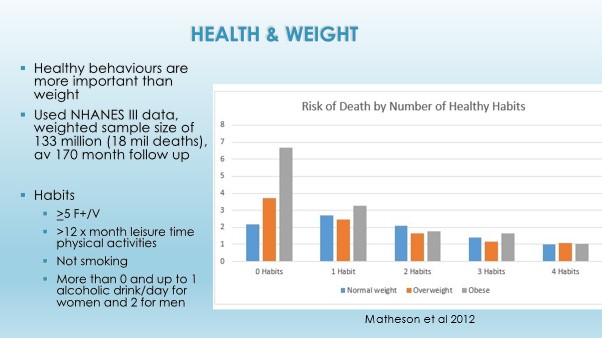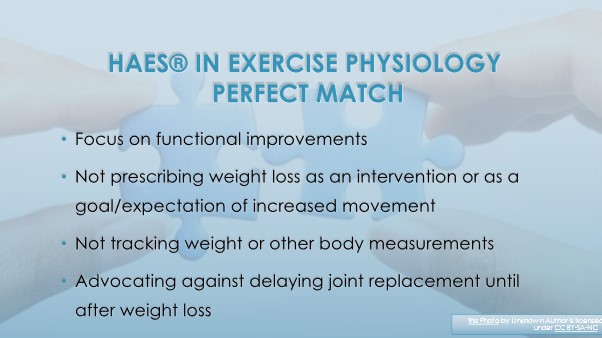Health at Every Size® - An introduction for AEPs. Meg McClintock APD
Practicing under a weight centric approach doesn’t mean weight is the only focus of the intervention, rather it describes an underlying belief that better health is accessed through maintaining or achieving a ‘healthy weight’. Health at Every Size® (HAES) challenges this assumption that weight is a reflection of health behaviours and acknowledges research that demonstrates the ineffectiveness and harms caused by the pursuit of weight loss.
Meg unravels a rationale for a weight neutral approach through the HAES® lens, asserting that healthy behaviours, rather than a focus on reducing body size, is the most useful way to support health in our clients.
We are introduced to the Health at Every Size® principles:
- Weight inclusivity
- Health enhancement
- Respectful care
- Eating for well being
- Life enhancing movement
How these principles apply to the role of an Exercise Physiologist is actually rather intuitive. Meg offers her impression of the broad range of functional and biochemical measures which can be the focus of our exercise intervention.
You’ll be offered a sense of confidence that we can, and should, help our clients improve their health independent of weight change. And well, when it’s put like that, it’s not so provocative after all! HAES® and Exercise Physiology seem to be a pretty great match.


Meg McClintock is an APD with over 18 years’ experience. She spent the first 10 years of her career in hospital based, clinical dietetics where she developed a love for clinical reasoning, evidence-based practice and multidisciplinary care. Meg began her private practice in 2011 and works within the weight inclusive, HAES paradigm which acknowledges ineffectiveness and harm of weight loss interventions and the negative physical and psychological impacts of weight stigma in the lives of the individuals of all sizes. Meg is a HAES Australia advisory group member and has delivered guest lectures on weight inclusive practice for dietetic students, dietitians, multidisciplinary groups and teachers.
To register for the presentation and associated documents including the assessment quiz click here.